
Aberystwyth University is a public research university in Aberystwyth, Wales. Aberystwyth was a founding member institution of the former federal University of Wales. The university has over 8,000 students studying across three academic faculties and 17 departments.

The Foundation for Individual Rights and Expression (FIRE), formerly known as the Foundation for Individual Rights in Education, is a 501(c)(3) non-profit civil liberties group founded in 1999 with the mission of protecting free speech rights on college campuses in the United States. FIRE was renamed in June 2022, with its focus broadened to speech rights in American society in general.

Liberty University (LU) is a private evangelical Christian university in Lynchburg, Virginia. It is affiliated with the Southern Baptist Conservatives of Virginia. Founded in 1971 by Jerry Falwell Sr. and Elmer L. Towns, Liberty is among the world's largest Christian universities and the largest private non-profit universities in the United States by total student enrollment. Most of its enrollment is in online courses; in 2020, the university enrolled about 15,000 in its residential program and 80,000 online.

The University of Buckingham (UB) is a non-profit private university in Buckingham, England and the oldest of the country's six private universities. It was founded as the University College at Buckingham (UCB) in 1973, admitting its first students in 1976. It was granted university status by royal charter in 1983.

Claremont McKenna College (CMC) is a private liberal arts college in Claremont, California. It has a curricular emphasis on government, economics, public affairs, finance, and international relations. CMC is a member of the Claremont Colleges consortium.
In the United States, higher education is an optional stage of formal learning following secondary education. It is also referred as post-secondary education, third-stage, third-level, or tertiary education. It covers stages 5 to 8 on the International ISCED 2011 scale. It is delivered at 4,360 Title IV degree-granting institutions, known as colleges or universities. These may be public or private universities, research universities, liberal arts colleges, community colleges, or for-profit colleges. US higher education is loosely regulated by the government and by several third-party organizations.
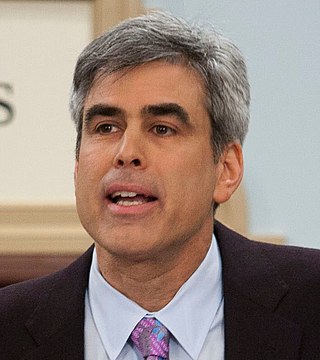
Jonathan David Haidt is an American social psychologist and author. He is the Thomas Cooley Professor of Ethical Leadership at the New York University Stern School of Business. His main areas of study are the psychology of morality and moral emotions.

The National Association of Scholars (NAS) is an American 501(c)(3) non-profit politically conservative education advocacy organization. It advocates against multiculturalism, diversity policies, and against courses focused on race and gender issues.
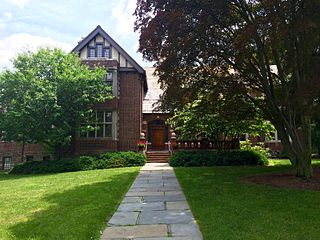
The James Madison Program in American Ideals and Institutions, often called simply the James Madison Program or the Madison Program, is a scholarly institute within the Department of Politics at Princeton University espousing a dedication "to exploring enduring questions of American constitutional law and Western political thought." The Madison Program was founded in 2000 and is directed by Robert P. George, the McCormick Professor of Jurisprudence at Princeton University.
The Society for Academic Freedom and Scholarship (SAFS) is a Canadian non-profit organization founded to promote academic freedom and intellectual excellence on Canadian institutions of higher education.
Academic bias is the bias or perceived bias of scholars allowing their beliefs to shape their research and the scientific community. It can refer to several types of scholastic prejudice, e.g., logocentrism, phonocentrism, ethnocentrism or the belief that some sciences and disciplines rank higher than others.
For-profit higher education in the United States refers to the commercialization and privatization of American higher education institutions. For-profit colleges have been the most recognizable for-profit institutions, and more recently with online program managers, but commercialization has been a part of US higher education for centuries. Privatization of public institutions has been increasing since at least the 1980s.
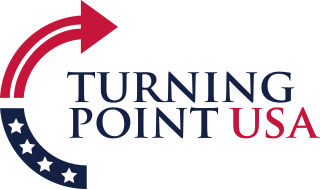
Turning Point USA (TPUSA) is an American nonprofit organization that advocates for conservative politics on high school, college, and university campuses. It was founded in 2012 by Charlie Kirk and Bill Montgomery. TPUSA's interconnected affiliate groups include Turning Point Endowment, Turning Point Action and TPUSA Faith. TPUSA has been described as the fastest growing organization of campus chapters in America, and according to The Chronicle of Higher Education, is a dominant force in campus conservatism.
The political views of American academics began to receive attention in the 1930s, and investigation into faculty political views expanded rapidly after the rise of McCarthyism. Demographic surveys of faculty that began in the 1950s and continue to the present have found higher percentages of liberals than of conservatives, particularly among those who work in the humanities and social sciences. Researchers and pundits disagree about survey methodology and about the interpretations of the findings.

Campus Reform is an American conservative news website focused on higher education. It is operated by the Leadership Institute. It uses students as reporters. The news site is known for conservative journalism, where it reports incidents of liberal bias and restrictions on free speech on American college campuses. The online publication maintains running list of "victories"—ranging from college policy changes to firings—on a dry-erase board at the website's Arlington, Virginia, headquarters inside the Leadership Institute.

Professor Watchlist is a website, run by conservative advocacy organization Turning Point USA, that lists academic staff which Turning Point believes "discriminate against conservative students, promote anti-American values and advance leftist propaganda in the classroom." It was launched in 2016 and as of December the same year, the website listed about 200 professors. It also falsely claims that Hunter Biden "assist[ed] in lecturing a course" at Tulane University in the fall semester of 2021.
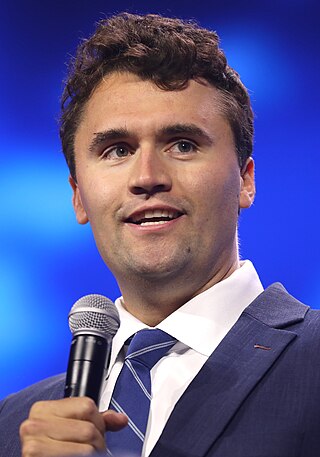
Charles J. Kirk is an American conservative activist and radio talk show host. He founded Turning Point USA with Bill Montgomery in 2012, and has served as its executive director since. He is the CEO of Turning Point Action, Students for Trump, and Turning Point Academy, Turning Point Faith, president of Turning Point Endowment, and a member of the Council for National Policy. Kirk has written four books.

Heterodox Academy (HxA) is a non-profit advocacy group of academics working to counteract what they see as a lack of viewpoint diversity on college campuses, especially political diversity. The organization was founded in 2015 by Jonathan Haidt, Nicholas Quinn Rosenkranz, and Chris C. Martin. As of 2023, Heterodox Academy had about 5,000 members.
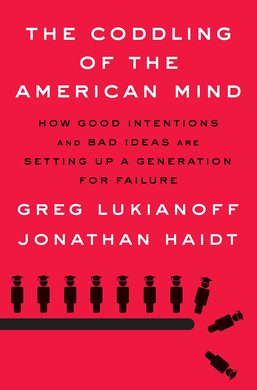
The Coddling of the American Mind: How Good Intentions and Bad Ideas Are Setting Up a Generation for Failure is a 2018 book by Greg Lukianoff and Jonathan Haidt. It is an expansion of a popular essay the two wrote for The Atlantic in 2015. Lukianoff and Haidt argue that overprotection is having a negative effect on university students and that the use of trigger warnings and safe spaces does more harm than good.
Higher education in the United States is an optional stage of formal learning following secondary education. Higher education, also referred to as post-secondary education, third-stage, third-level, or tertiary education occurs most commonly at one of the 4,360 Title IV degree-granting institutions in the country. These may be public universities, private universities, liberal arts colleges, community colleges, or for-profit colleges. Learning environments vary greatly depending on not only the type of institution, but also the different goals implemented by the relevant county and state.













